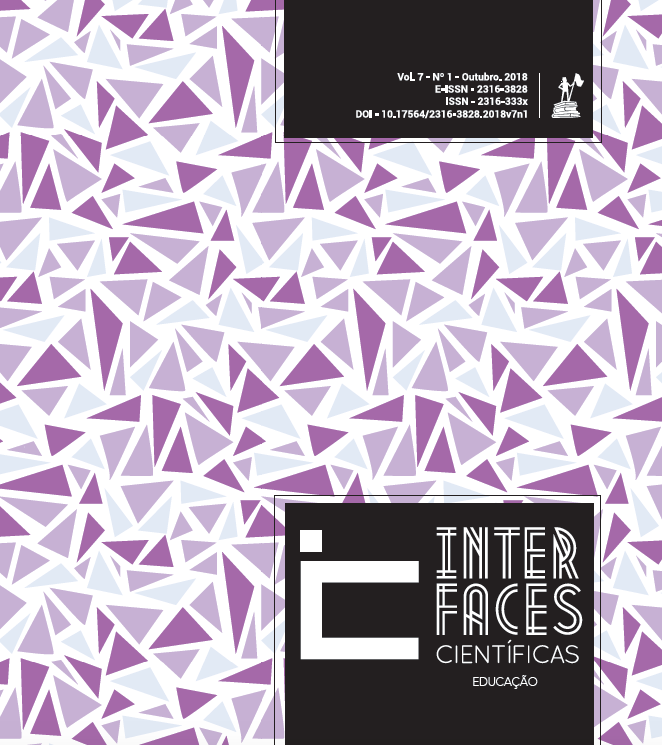WORLD READING: STRENGTHS BETWEEN AN OUTREACH PRACTICE AND THE PRINCIPLES OF CRITICAL PEDAGOGY
DOI:
https://doi.org/10.17564/2316-3828.2018v7n1p25–36Paraules clau:
Critical Pedagogy. Outreach Practice. Literacy Method by Paulo Freire. Social Pedagogy.Publicades
Descàrregues
Descàrregues
Número
Secció
Llicència
A Revista oferece acesso livre e imediato ao seu conteúdo, seguindo o princípio de que disponibilizar gratuitamente o conhecimento científico contribui para a democratização do saber. Assume-se que, ao submeter um artigo, o(a) autor(a) se reconhece como detentor(a) do direito autoral sobre ele e autoriza seu livre uso pelos leitores, podendo ser, além de lido, baixado, copiado, distribuído e impresso.Resum
This article aims to analyze elements of the experience lived bases on a hands on practice inspired by the principles in Critical Pedagogy. We try to answer in what way the principles of this Pedagogy were experienced in the scope of the Reading the World outreach project. Based on a qualitative approach, we use narratives of the students who participated in the above mentioned educational practice as adult literacy teachers. We realize that the Freirean postulates have proved important, proving not only in theory but also in practice that knowledge is only liberating if it is associated with a political commitment on behalf of the oppressed.Com citar
Referències
BRANDÃO, C.R. O que é método Paulo Freire. 2.ed. São Paulo: Brasiliense, 1981.
BRASIL, Instituto Brasileiro de Geografia e Estatística. Pesquisa nacional por amostra de domicílio contínua. Rio de Janeiro: IBGE, 2018.
FREIRE, P. Pedagogia da autonomia: saberes necessários à prática educativa. São Paulo: Paz e Terra, 1996.
FREIRE, P. Pedagogia do oprimido. 49.ed. Rio de Janeiro: Paz e Terra, 2005.
FREIRE, P. Pedagogia da tolerância. 2.ed. Rio de Janeiro: Paz e Terra, 2014.
GIL, A.C. Métodos e técnicas de pesquisa social. 5.ed. São Paulo: Atlas, 1999.
GRACIANI, M.S.S. Pedagogia Social. São Paulo: Cortez, 2014.
HOOKS, B. Ensinando a transgredir: a educação como prática da liberdade. 2.ed. São Paulo: Martins Fontes, 2017.
KINCHELOE, J.L. et al. Critical Pedagogy and qualitative research. 2018.
NORMAN, K. et al. Alfabetização e educação de jovens e adultos na América Latina, direito humano fundamental e fator essencial de equidade social. In: Unesco. Educação de jovens e adultos na América Latina: direito e desafio de todos. São Paulo: Unesco/Fundação Santillana, 2009. p.9-54.
SAGE Handbook of Qualitative Research. 5.ed. California: SAGE Publications, p.235-260. Retrieved from: <https://books.google.com.br/books?hl=pt-BR&lr=&id=k2LgDQAAQBAJ&oi=fnd&pg=PA235&dq=Kincheloe,+Joe+L.+critical+pedagogy&ots=yMcbKTQHLS&sig=90dFvKnpTNGoWiKB0aDIr7J_i5A#v=onepage&q&f=false>. Access in:
SOBRAL, M.N. Interfaces da pesquisa em Educação. In: SOBRAL, M.N.; BRETAS, S.A. (Org.). Pesquisa em educação: interfaces, experiências e orientações. Maceió: Edufal, 2016. p.17-40.
















